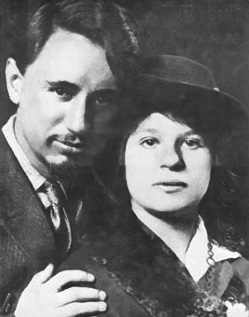Frases célebres de Will Durant
Declaraciones consecutivas a la anterior cita.
Frases de fe de Will Durant
Fuente: The Lessons of History, Will y Ariel Durant.
Fuente: The Story of Civilization: Part III—Caesar and Christ (La historia de la civilización: Parte III.—César y Cristo).
Fuente: Ceasar and Christ, página 647.
Fuente: En la Parte II de The Story of Civilization, La historia de la civilización, página 190, 191.
Fuente: The Age of Faith, La era de la fe.
Will Durant Frases y Citas
Fuente: Caesar and Christ.
Fuente: Caesar and Christ.
Fuente: The Story of Civilization: Part III.
Will Durant, a los 92 años de edad, resumió lo que había aprendido en una vida de estudiar la historia con estas pocas palabras sencillas.
En el libro La edad de la fe, Will Durant explica cómo se produjo el proceso por el que los iconos no tardaron en convertirse en piezas clave de la religiosidad privada y pública.
Fuente: The Story of Civilization: Part III—Caesar and Christ.
Fuente: Parte II de The Story of Civilization (Historia de la civilización), pág. 659.
Fuente: The Lessons of History (Las lecciones de la historia), Will y Ariel Durant.
Haciendo referencia al humanismo y a los humanistas del renacimiento.
En 1572 un informe titulado Discourse on the Present State of England (Discurso sobre el estado actual de Inglaterra) señaló: «El reino está dividido en tres partidos: los papistas, los ateos y los protestantes. Se favorece a los tres por igual: al primero y al segundo porque, puesto que son muchos, no nos atrevemos a causarles disgusto». Según otro cálculo, había 50.000 ateos en París en 1623.
Fuente: The Story of Civilization: Part VII—The Age of Reason Begins (La historia de la civilización: Parte VII.—Empieza la era de la razón).
Fuente: A History of Civilization, Una historia de la civilización.
Will Durant: Frases en inglés
Fuente: The Story of Philosophy: The Lives and Opinions of the World's Greatest Philosophers
“Every science begins as philosophy and ends as art.”
The Story of Philosophy (1926)
“In philosophy, as in politics, the longest distance between two points is a straight line.”
Fuente: The Story of Philosophy: The Lives and Opinions of the World's Greatest Philosophers
The Case for India (1931)
Preface
The Story of Civilization (1935–1975), VI - The Reformation (1957)
Fuente: The Story of Civilization (1935–1975), VI - The Reformation (1957), p.g. 14
The Lessons of History (1968), p. 72 (co-authored with Ariel Durant)
When asked, at the age of 92, if he could summarize the lessons of history into a single sentence. As quoted in "Durants on History from the Ages, with Love," by Pam Proctor, Parade (6 August 1978) p. 12. Durant is quoting Jesus (from John 13:34) here, and might also be quoting Jiddu Krishnamurti: "Love is the most practical thing in the world. To love, to be kind, not to be greedy, not to be ambitious, not to be influenced by people but to think for yourself — these are all very practical things, and they will bring about a practical, happy society."
The Story of Civilization (1935–1975), I - Our Oriental Heritage (1935)
Fuente: The Story of Civilization (1935–1975), III - Caesar and Christ (1944), Chapter 30, part 1, p. 652.
“When liberty becomes license, dictatorship is near.”
The Story of Philosophy (1926)
Fuente: The Story of Civilization (1935–1975), VI - The Reformation (1957), p.g. 8
As quoted in Midnight by Dean Koontz
The Story of Civilization (1935–1975), XI - The Age of Napoleon (1975)
“No man who is in a hurry is quite civilized.”
Fuente: The Story of Civilization (1935–1975), II - Life of Greece (1939), Ch. XII : Work and Wealth in Athens, p. 277 http://books.google.com/books?id=l2wgAAAAMAAJ&q=%22no+man+who+is+in+a+hurry+is+quite+civilized%22&pg=PA277#v=onepage
“Civilization begins with order, grows with liberty, and dies with chaos.”
The Story of Philosophy (1926)
The Case for India (1931)
“A sensation is the feeling of an external stimulus or an internal condition.”
Fuente: Fallen Leaves (2014), Ch. 6 : Our Souls
“By mind I mean the totality of perceptions, memories and ideas in an organism.”
Fuente: Fallen Leaves (2014), Ch. 6 : Our Souls
“Time, subjectively, is the conscious sequence of perceptions.”
Fuente: Fallen Leaves (2014), Ch. 6 : Our Souls
“Space, subjectively, is the coexistence of perceptions — perceiving two objects at once.”
Fuente: Fallen Leaves (2014), Ch. 6 : Our Souls
